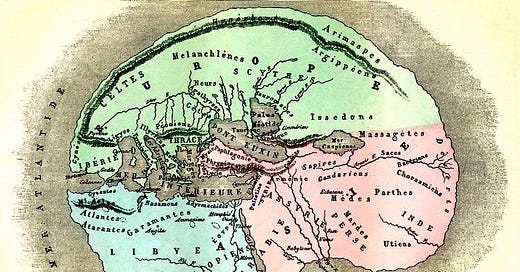If you are looking for the beginning of the study for Herodotus’ Histories then you can go HERE for a brief introduction. At the bottom of the introduction you will find the links to each section of the study guide as it becomes available. If you would like to see the growing list of book studies available for free on this site you can go HERE. Enjoy!
Virtues/Vices/Great Ideas: (Find them in the Text)
Religion, Truth
Grammar Questions: (The Information of the Text)
According to Herodotus, what did the Persians not have concerning the worship of their gods?
When making a sacrifice, what was a Persian man “not allowed” to pray for?
What day, in all the year, were Persians most fond of celebrating?
How did the Persians make use of wine when considering important matters and what should be done?
What rationale do the Medes and Persians employ when according honor to nations other than their own?
What two things do the Persians consider “the greatest proof of manly excellence?”
What were the only three things a Persian boy was taught to do?
According to Herodotus, what did the Persians refuse to believe a child would ever do?
How did the Magi differ from Egyptian priests?
According to Herodotus, why did Cyrus tell the fable about the Piper and the Fish?
What “law” did the Carian women make concerning their husbands?
Logic Questions: (Interpreting, Comparing/Contrasting, Reasoning)
What are some differences between the Greek and Persian conceptions of the gods? What might be inferred from those differences?
Why might the Persians have thought it a good idea to deliberate while under the influence of wine?
Why might the Persians have thought it a good idea to finalize decisions while sober?
Consider the Persians practice of governing (which Herodotus called a “progressive scale”) the surrounding nations and territories. Why might this way of doing things have worked fairly well for them?
Why would the Persians have offered their boys such a narrow education? What are some things likely to result from such an education (for good or ill)?
Herodotus said that the Persians believe lying to be “the most disgraceful thing in the world” and “the next worst, to owe a debt; because, …the debtor is obliged to tell lies.” What did he mean by this? How does being a debtor make one “obliged to tell lies?”
Why might Herodotus, as a historian, note, “Thus much I can declare of the Persians with entire certainty, from my own actual knowledge?
Rhetoric Questions: (The Analysis of Ideas in the Text)
Herodotus said that the Persians “hold it unlawful to talk of anything which is unlawful to do.” Evaluate this notion. Should it be illegal to speak about doing things that are illegal? Why or why not?
When the Ionian and Aeolian Greeks sought to biome lieges of Cyrus, he told them a fable. What is the purpose of a fable? Why might someone opt to tell a fable rather than just speak plainly? Should we use fables more than we do in our present day? Why or why not?
Theological Analysis: (Sola Scriptura)
Read Exodus 20:1-17. What are some points of commonality between the Christian religion and that of the Persian religion as described by Herodotus? In what way are there still some very important differences?



